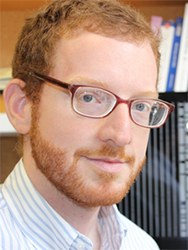Hyejung Won, PhD, and Jason Stein, PhD, in the UNC Department of Genetics and members of the UNC Neuroscience Center, led a genome-wide association study to find that lowered expression of a gene called DDHD2 may increase a person’s likelihood of autism.

In a study published in Translational Psychiatry, research led by Hyejung Won, PhD, and Jason Stein, PhD, assistant professors in the UNC Department of Genetics and members of the UNC Neuroscience Center, found that lowered expression of a gene called DDHD2 may increase a person’s likelihood of autism.
Spectrum News, a leading source of news and expert opinion on autism research, featured the results of this work here.
Here’s an excerpt:
“The researchers arrived at this conclusion via a genome-wide association study (GWAS), an approach used to identify common variants — in the form of single-letter changes to DNA that are found in more than 1 percent of the population — linked to autism.
Scientists have identified many rare variants associated with autism, but together these account for only a small fraction of all cases and often occur spontaneously, so they cannot fully explain why autism tends to run in families.

Common variants, by contrast, account for more than 50 percent of autism’s heritability, says Won, co-senior author with Stein. “That’s why we thought it would be super important to understand this class of variation.”
The new analysis identifies two new regions of the genome that harbor common variants tied to autism. One region controls the activity of DDHD2, linking the gene to autism for the first time. Mice missing DDHD2 have motor and cognitive impairments, according to earlier research.
Won, Stein, and colleagues based their analysis on data from 6,222 autistic people in a genetic registry called SPARK. (SPARK is funded by the Simons Foundation, Spectrum’s parent organization.”
SPARK, which includes collaborators at UNC-Chapel Hill, is a landmark online research partnership involving 50,000 people with autism and their families. It’s goal is to speed up research and advance understanding of autism to help improve lives. Read more about SPARK at the UNC Autism Research Center.